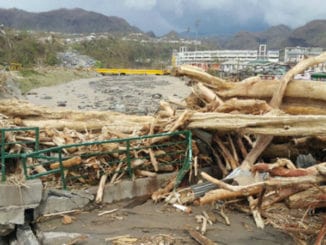
TALAGANTE, Chile: A torrid summer and devastating fires across central Chile’s wine belt have forced an earlier harvest this year, but there are no signs that volume or flavour will be affected, local industry experts said on Thursday.
High temperatures can lead to excessive sugar and alcohol in the grapes and the harvest needed to take place as soon as the right level was reached, they said.
Climate change is contributing to record droughts, heat and wildfires in Chile, the world’s No. 4 exporter of wine by volume and the biggest among New World producers, threatening crops and spurring growers to move south to cooler climes.
In December, temperatures in central Chile hit their highest level in a century. The hot, dry conditions sparked the biggest wildfires in the country’s modern history, burning homes and forests and blanketing the entire region in thick smoke.
Most vines had escaped the flames and the bigger worry was the effect of the smoke on the flavour of the grapes, said Angelica Valenzuela, commercial director of industry body Wines of Chile.
“The number of vines burnt was low. But there could be an effect from the smoke which we will see when the harvest is done,” she said in an interview at the Undurraga vineyard near Talagante, 22 miles (35 kilometres) southwest of the capital of Santiago. “For now, the first results are not showing signs of any problems.”
Close to where some of the worst fires raged, Undurraga produces around 2 million cases a year, some 70 percent of which is exported.
The hot conditions in the southern hemisphere summer had forced growers like Undurraga to bring forward the harvest by about a month, with the first varieties picked as early as January, company spokesman Fernando Anania said.
That earlier-than-usual harvest was a challenge to Chile’s winegrowers in logistics terms, but should not have a major effect on volumes or taste, said Anania in an interview.
Exports of Chilean wine grew 0.9 percent in 2016 by volume and 3.5 percent by value, according to Wines of Chile. Last year, for the first time, China overtook the United States to become the industry’s top export destination.



